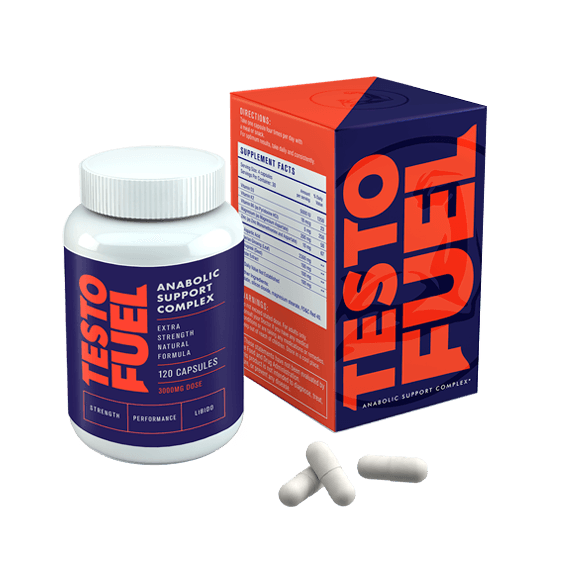What Is The Link Between Testosterone and Weight Loss?
Testosterone and weight loss
Testosterone is a powerful hormone with a huge influence on your physique. It’s present in all people, but men produce it in the most potent amounts, sometimes ten times more than women.
Everybody knows T plays a part in building muscle, but what’s the link between testosterone and weight loss? We’re going to find out right now.
What is testosterone?
It’s not just us humans who have testosterone. All mammal’s produce T in some capacity, with the males of the species being the busiest creators.
Testosterone is, after all, the androgenic hormone at the forefront of masculine characteristics. Because while T promotes a few similar traits in either sex, it has the power to impact the entire wellbeing of all men.
From mood right through to body composition, testosterone has a hand in almost every aspect of male life.
Testosterone’s functions in men include:
- Muscle mass gain
- Fat distribution
- Libido
- Sexual function
- Fertility/sperm quality
- Growth of reproductive organs during puberty
- Voice deepening
- Development of facial and pubic hair during puberty
- Bone growth and density
- Energy
- Mood
It’s clear that T has quite the impressive biological resume. But, how does it even trigger and influence changes inside your body?
Interestingly, it’s all down to androgen receptors situated inside compatible cells. Testosterone binds to the surface to these sites, and when it does, the corresponding cell’s function is affected.
Hence why bioavailable free testosterone has a greater overall influence on things such as muscle growth or sperm quality, compared to trapped bound testosterone.
Your testosterone production starts to ramp up the intensity as it catapults you through puberty.
Experts say your levels typically max out around age 19[1], before levelling out throughout the decade after.
It’s estimated that the milestone of age 30 is about the time T takes a natural turn downward. From then on, they fall at around one percent every year until old age[2].
Normal testosterone levels for men range anywhere between 300-1000 ng.dL. Once they fall below the 300 ng.dL baseline, however, they’re considered low[3].
Low testosterone in men
Low testosterone – aka hypogonadism – can happen to any man. Time is always a primary factor, but early un-age-related hypogonadism might also be influenced by illness, disease, or lifestyle habits.
Experts recently discovered that our generation’s T is being left in the dust of our forefathers[4][5].
Us modern men typically haver lower testosterone levels compared to our old man, creating an androgen downfall, driven somewhat by our high-stress 21st century habits.
We apparently don’t exercise enough, eat the right foods, get our daily fix of sunshine, and our stress levels are through the roof.
Who knows, you might be reading this as a wholefood-eating outdoor lumberjack who manages three hours of Zen meditation a day followed by a faultless eight hours sleep?
But then again, probably not. So, you could be harming your hormone health without even realizing.
Impact of low testosterone on men’s health
Testosterone plays a pivotal part in driving muscle protein synthesis[6], which is the function of building muscle from amino acids.
T also has a hand in red blood cell production too, the very cells needed to transport oxygen around your body and energize said muscles.
Understandably, when your testosterone suffers, so does your ability to grow and maintain a strong muscular physique.
You might notice you start losing lean mass and gaining fat quickly as a result. This can be the result of many factors coming together and contributing to unwanted weight gain.
Aside from fat gain and muscle loss, other symptoms of male hypogonadism include[7]:
- Low libido
- Impaired sexual function/ED
- Infertility
- Irritability
- Brain fog
- Frailty/weakness
- Reduced energy
- Low mood
- Depression
- Anxiety
- Increased risk of heart attacks and stroke
- Increased risk of diabetes and metabolic disorder
There is no positive side-effect of hypogonadism. The outcome can cause serious health and wellbeing complications.
Low T-levels is linked with obesity
As you’ll have already guessed, testosterone deficiency and obesity are intrinsically linked. Scientists aren’t sure which influences the other the most, but they’re certain there’s a connection between the two[8][9][10][11].
Research suggests that obese men have on average 30% lower testosterone[12], with 70% of those morbidly obese experiencing hypogonadism[13].
If you’re overweight, there’s a chance your estrogen levels are higher than normal too[14], which upsets the natural harmony of a healthy hormone balance.
Muscle loss driving factor
So, if you’re currently suffering from hypogonadism, you’re likelier to gain body fat easier than men with a healthy hormone balance.
Muscle mass has a much higher energy demand than fat, therefore if you begin to lose it, the number of calories you’d usually burn in a day diminishes too.
Picture muscle cells like roaring furnaces, blazing through energy to function, and your food intake like fuel for the fire.
Reduced energy burn significantly increases your chances of overeating, which can cause greater body fat accumulation.
This is why certain experts believe muscle loss to be a primary mechanism behind fat gain in hypogonadal men[15].
Belly fat kills testosterone
Harmful visceral belly fat is a testosterone killer. Unlike the fat under your arms, visceral belly fat is metabolically active and acts as an organ.
It’s notorious for pumping out inflammatory toxins into the blood stream, which can themselves cause harmful effects for T testosterone production.
Visceral belly fat is also full of aromatase, an enzyme with the ability to convert precious testosterone into the female hormone estrogen.
This only exasperates the issue for obese men, as estrogen reduces luteinizing levels, a signaling hormone sent from the pituitary gland to instruct testosterone production in the testes[16].
Less luteinizing hormone, less testosterone creation.
So, not only does having more visceral belly fat make you more prone to inflammatory fed conditions like diabetes, heart disease and certain cancers, but it can hike up your estrogen count too.
Bottom line – belly fat causes your testosterone levels to suffer[17].
Losing excess weight, especially around the belly, goes a long way in helping obese men reclaim healthy testosterone levels.
As you’ve probably already figured out, the same can be said in reverse too, with recent evidence showcasing how testosterone replacement therapy (TRT) lends a hand in weight loss among obese men[18].
But not everybody is able to undergo TRT, and you might not want to anyway. So, in the next section we’ll reveal a handful of scientifically proven ways to increase your T-levels naturally.
How can you increase your T-levels naturally?
Testosterone health in most men can be a product of its environment.
Unless there’s a certain disease or medical issues behind your lower levels, there are things you can do to hike-up your hormone health naturally.
1. Exercise – especially with weights
Exercise is one of the most important pieces of the weight loss puzzle. It’s also extremely beneficial for supporting testosterone levels, with almost all forms of activity helping promote healthy production.
Not all workouts are weighed up equally, though. Strength training – aka lifting weights – appears to harbor the most gains.
Studies show that lifting heavy weights not only hikes-up testosterone in the short term but drives elevated levels in the long-term too[19][20].
2. Eat enough healthy fats
When it comes to T, you really are what you eat.
First, your body requires cholesterol to synthesize certain steroid hormones. Testosterone is one of them, which makes eating healthy fats an integral part of maintaining optimized production.
Studies show that a low-fat diet leads to low androgen levels, which goes against most mainstream dietary advice for weight loss.
So, if you want to optimize your T naturally, don’t skip healthy fats and work them into your calorie allowance instead[21].
3. Use the right supplements
Certain supplements have been shown to boost testosterone in some men.
Ashwagandha, an ancient adaptogen herb, is one of the most popular among modern men. It helps the body adapt to stress and lowers cortisol levels, which is what scientists speculate causes a boost in natural T production.
Studies have shown that supplementing with the herb can not only increase testosterone levels, but may also improve fertility, muscle building, and fat loss too.
You can find ashwagandha easily online as both a standalone supplement and part of testosterone boosters.
D-Aspartic Acid, a naturally occurring amino acid, is another notable mention. Studies suggest supplementing with D-AA can have a positive affect on men with pre-existing low levels of testosterone[22][23].
Much like ashwagandha, it also shows promise in improving fertility and the ability to hike-up muscle building. However, if you already have healthy T, you probably won’t see an increase in production[24].
D-AA is widely available as an individual supplement and as part of wider testosterone boosters.
4. Get more vitamin D
Experts predict that around 50% of the planet’s population are vitamin D deficient[25].
We spend so much time out of the sun, our skin just doesn’t get enough direct contact to fulfill our daily needs.
Given that vitamin D is a potent precursor to testosterone, this is bad news for your hormone balance.
Research suggests there’s a direct correlation between being deficient in vitamin D and suffering from hypogonadism[26].
But, when men with low levels of vitamin D get enough direct sunlight, they can rejuvenate their plummeted vitamin count and hike up testosterone at the same time[27].
Alternatively, if stepping out and soaking up more of the sun’s rays isn’t an option, a vitamin D supplement is shown to also have similarly impressive results[28].
5. Lose weight
Earlier we saw how being overweight has a negative impact on testosterone production.
So, if you are currently overweight or obese, managing your diet and exercise to help you lose extra body fat could create a better environment for testosterone to thrive.
6. Fix your sleep
Been burning the midnight oil a lot lately? Remember that everything in life has a price. All those extra hours you’re stealing from your sleep, could be at the cost of your T.
Research into the impact of sleep deprivation shows that not getting enough can sever testosterone production – even among young, otherwise healthy men[29][30][31].
Skipping a night’s quality rest can have the same impact as aging 10-15 years overnight! Fix your sleep first, then your T might follow.
Summary
Optimizing your testosterone levels can have a dramatic impact on weight loss.
Follow the simple steps above and start to improve your hormone balance and body composition today. You might find that last bit of stubborn belly fat becomes a lot easier to lose.



